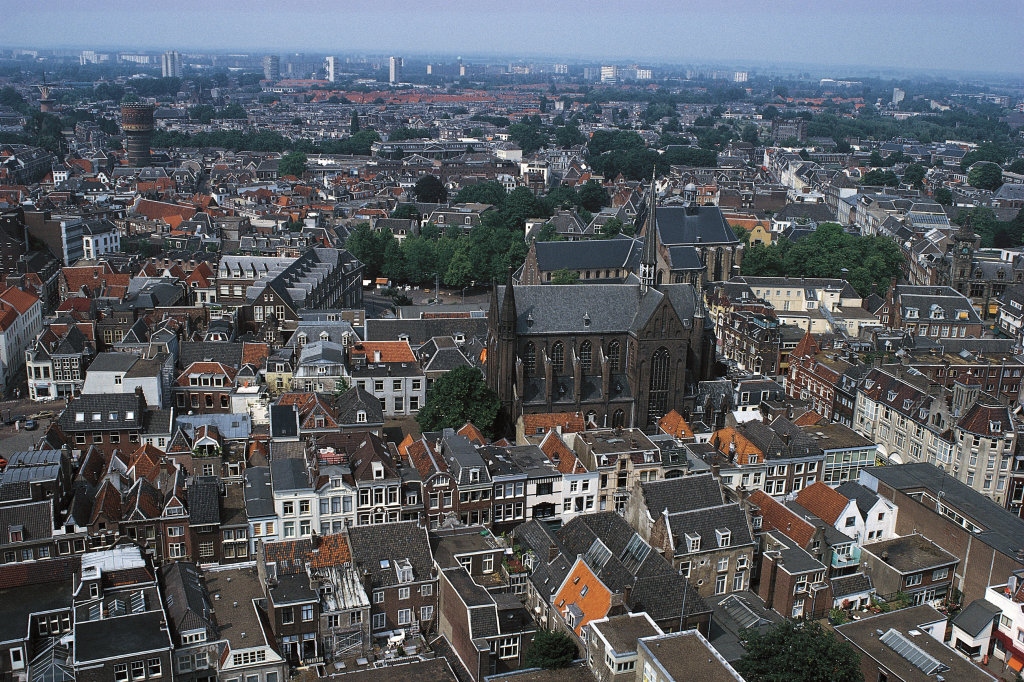Health is in the DNA of our city

Everyone takes part
Rita van der Meulen suggests that the health approach used in Utrecht is working so well because everyone is involved, from all the domains. “Health is in the DNA of Utrecht,” she says. “That’s why Utrecht is able to implement its health policies so broadly. Some 24 to 25 per cent of people work in the city’s health economy. In essence, the whole city is united on this theme.” The wide-ranging approach is having an effect in Utrecht. In the Merwedekanaal Zone, for instance, initiatives are underway to define and shape healthy urbanisation. Local residents are getting involved from an early stage, and people are part of the decision-making process; there are successful city gardens, hotspots sports and exercise, created incubators, and network of cycling and walking routes.
In the vision of health embraced by the city, people take centre stage. Linden: “Being seen, being able to participate, being connected other people and feeling good: these are also health ethics. Giving people a reason to get out of bed, really listening to them: that’s also part of it.”
RIVM as an anchor point
“RIVM partners with us in our efforts to achieve a healthy city,” says Linden. “We couldn't do this without something like that behind us. We could think something is going to work and announce going to do it, but RIVM can research it and prove why something works or doesn't, and how. Knowledge gives confidence, especially when it comes from such an acclaimed institute as RIVM. Representatives from RIVM – Els van Schie and Director-General André van der Zande – are always present at strategic meetings. That visible support helps us to make things happen.” Van der Meulen: “Above all, stay close to your role as a solid, competent organisation, because that’s what makes you an anchor point.”
"RIVM partners with us in our efforts to achieve a healthy city”
Putting issues on the agenda
They also see where RIVM could play a role. Linden: “Given that RIVM is at the very heart of society, the Institute could very competently fulfil its role by putting health themes solidly on the agenda. Based on its reliable reputation, RIVM could make a very good contribution to helping the Netherlands achieve a healthier human environment.” They also envision an integrated approach. Climate action and a healthy living environment often go hand in hand. “I believe RIVM has a task here to conduct multi-pronged exploratory studies on effective approaches,” Linden says. Leenders adds: “RIVM could give local and regional authorities insight into the overall benefit to society if health is put first. For instance by drawing up scenarios for the environmental benefit of a car-free city centre, or how much greenery is needed to reduce heat in a city.”
“If you take part, you can see far better what works and what doesn’t”
Els van Schie, director Environment and Safety at RIVM:
“Utrecht is an example of a municipality where health is the starting point, not the end point. The city can be proud of that accomplishment. And the fact that collaboration in Utrecht integrates various elements. I know how difficult that is; we have isolated islands at RIVM as well. Even so, the concrete complex issues in the city help us get better at an integrated approach.
Projects like the ones in Utrecht also encourage RIVM to put health in the human environment solidly on the agenda across the board. As a knowledge institute, we enjoy brainstorming about how to structure a healthy human environment. We certainly see opportunities for deploying this knowledge more practically and more frequently. For example to test whether master plans for an area have carefully considered the risks and whether health opportunities have been used to optimal advantage. We would like to see more growth in application; once you take part, you can identify problem areas and see far better what works and what doesn’t.
RIVM mainly operates in response to commissions from the various government ministries. If they ask us to develop a number of knowldge based guidlines en instruments related to health in the human environment, we would be happy to do so. Utilising the full scope of our knowledge for this purpose is a very appealing prospect. We are an independent knowledge institute in terms of how we do research and what results come out of it, but not in what themes we research. Let’s start by investing more effort in proactively identifying and communicating issues. It’s still complicated to figure out how and when to offer unsolicited advice and who we should give it to.”